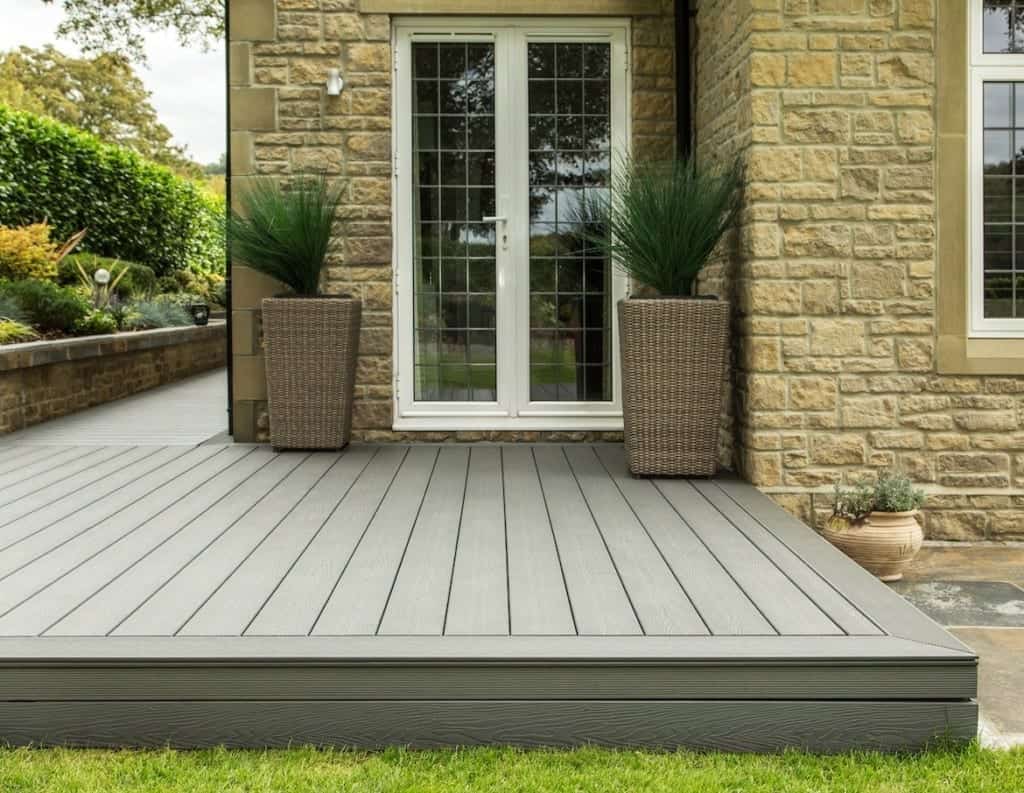Hiring an skilled deck installer Austin is the first step toward creating your ideal outdoor space.
Hiring an skilled deck installer Austin is the first step toward creating your ideal outdoor space.
Blog Article
Just how to Choose the Right Products for Your Deck Installation Task
Selecting the ideal products for your deck installment project can seem complicated. The key is to balance your spending plan, layout choices, and way of life requires to produce a deck that will improve your outdoor space for years to come.
Comprehending the Different Sorts Of Deck Materials
When starting a deck setup job, the choice of products becomes a pivotal choice. Various choices are offered, each with distinct characteristics and aesthetic appeal. Traditional wood, for circumstances, provides a classic, natural appearance and is normally more cost-effective. However, it can warp gradually and needs routine upkeep. Compound products, on the other hand, are a mix of wood and plastic, supplying toughness and resistance to weather elements. They demand less upkeep contrasted to timber but are typically more costly. An additional alternative is plastic, which is virtually maintenance-free and immune to parasites and rot, albeit much less natural-looking. By recognizing these distinctions, house owners can make an extra educated decision on one of the most appropriate deck product for their certain demands.
Examining the Longevity and Upkeep Demands of Deck Materials
Analyzing the toughness and upkeep requirements of deck products is a crucial action in deck installment. Longevity involves the product's capability to stand up to severe climate conditions, wear and tear, and its durability.
Recognizing maintenance requirements is just as essential. Some products need normal sealing or tarnishing to maintain their look and stand up to dampness damages, while others, like composite outdoor decking, require much less upkeep. By assessing these factors, one can pick the most suitable decking product, guaranteeing a balance between longevity, maintenance needs, and aesthetic appeal.
Price Evaluation: Contrasting Timber and Composite Decking
Although cost may originally seem like a second concern, it is a substantial element when contrasting timber and composite outdoor decking. Wood, generally a less costly option, has a reduced in advance cost. Over time, maintenance expenditures can build up, possibly making timber a lot more expensive in the long run. These upkeep prices might consist of discoloration, securing, or replacing damaged boards. On the other hand, composite outdoor decking, while more expensive initially, needs less maintenance, possibly minimizing lasting prices. Yet, it's essential to bear in mind that composite decking isn't impervious to damage, and replacement costs can be high. Therefore, possible deck proprietors need to consider their spending plan and willingness to preserve their decks when making a decision between timber and composite outdoor decking.
Visual Appeals and Style Versatility of Decking Products
While cost is an essential factor to consider, the aesthetic charm and style adaptability of outdoor decking products likewise play a considerable duty in the decision-making procedure. Various materials offer varying degrees of aesthetic allure. For circumstances, all-natural timber decking supplies a traditional, timeless look, while composite materials offer a variety of colors and appearances to suit diverse tastes and styles. Similarly, design versatility describes the capability to form and manipulate the outdoor decking material to meet particular layout requirements. Wood, as an example, provides high design versatility because of its convenience of cutting and forming. Compound materials, while much less adaptable in style, are still versatile enough for a lot of deck layouts. These factors, consequently, are crucial components in the choice of outdoor decking material.
Ecological Influence of Decking Products
When picking decking materials, one should take into consideration not just aesthetic appeals and longevity, but also the environmental influence. It is very important to examine the sustainability of materials and discover recycled outdoor decking options. Moreover, comprehending the prospective influence on local ecological communities will certainly make certain a more eco responsible choice.
Analyzing Material Sustainability
In the realm of deck site web building, assessing product sustainability is an important step. This entails reviewing the ecological effect of each prospective product, thinking about elements such as the energy needed for its manufacturing, its carbon impact, and its end-of-life disposal or recycling options. For example, timber is a renewable energy, but unsustainable logging techniques can result in logging. Conversely, composite decking materials usually incorporate timber and plastic, lowering the need for brand-new lumber but increasing dependence on nonrenewable fuel sources. Aluminum and other metals might be extra durable and recyclable, however their removal and handling can be energy-intensive. Therefore, the option of outdoor decking materials must stabilize functionality, looks, expense, and sustainability to ensure a responsible and durable installment.
Recycled Outdoor Decking Alternatives

Compound outdoor decking is specifically prominent due to its longevity and simplicity of upkeep. Recycled plastic outdoor decking, on the other hand, is highly resilient and calls for marginal maintenance.

Impact on Local Communities
While the advantages of making use of recycled products for decking can not be overstated, it's just as crucial to think about the more comprehensive ecological ramifications of these choices. The removal, processing, and transport of products can profoundly affect local ecosystems. Logging for lumber decking adds to environment loss and climate change. Also the manufacturing of composite products can release dangerous exhausts. On the other hand, utilizing recycled or sustainably sourced products can help reduce these results. Additionally, taking into consideration the life expectancy find out of materials can decrease environmental impact; longer-lasting alternatives need less constant replacement, thus saving resources. Proper disposal of old outdoor decking is vital to reducing landfill waste. Essentially, an eco-conscious deck task demands cautious product choice, sustainable sourcing, and liable disposal.
Making Your Decision: Tips for Choosing the very best Deck Products
As the write-up transitions into the subtopic of "Making Your Last Choice: Tips for Choosing the very best Deck Products", it is crucial to understand the variety of deck products readily available. Striking a balance in between toughness and visual appeal is necessary in this choice process. The following discussion will certainly lead viewers in making an enlightened selection based upon these essential factors to consider.
Recognizing Various Deck Products
The job of picking the right materials for your deck installment can appear intimidating because of the substantial variety of choices offered. However, recognizing the various products can streamline this process. Timber is a prominent selection, providing a classic aesthetic and affordability. Kinds of wood made use of consist of pressure-treated lumber, cedar, and redwood. Composite materials, made from a mix of timber and plastic, are low-maintenance and resistant to rot and bugs. Vinyl or PVC decks are a lot more sturdy and call for much less upkeep than composite materials, yet they can look less natural. Finally, light weight aluminum decks are strong, lightweight, and immune to rot, however they are likewise one of the most pricey alternative. Each product has its very own benefits and disadvantages, making it vital to consider your particular demands prior to read here making a decision.
Resilience vs. Aesthetics Equilibrium
Balancing durability with looks can be an obstacle when selecting deck products. The choice typically comes down to personal choices and the deck's meant use. High-traffic locations may necessitate resilient products like composite decking, which stands up to wear and tear however may lack the natural charm of timber. On the other hand, wood supplies an ageless appeal and heat that synthetic materials battle to reproduce. However, it requires much more upkeep and may not last as long. Homeowners require to strike a balance, thinking about both the deck's sensible needs and their aesthetic choices. By doing so, they can ensure their deck stays a functional and attractive outside area for many years to find.
Conclusion
In verdict, choosing the best products for your deck setup task needs cautious factor to consider of elements such as resilience, maintenance, expense, appearances, and environmental influence. Whether you choose standard wood or composite materials, your option needs to line up with your budget plan, design choices, and way of life. Eventually, the most effective decking product is one that enhances your outdoor room and supplies pleasure for several years to find.
Report this page